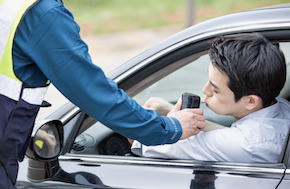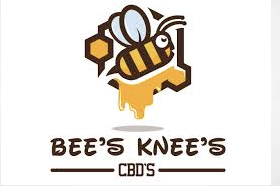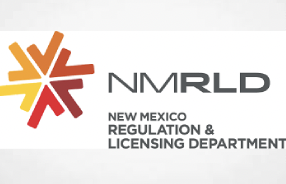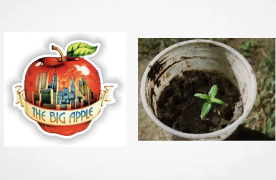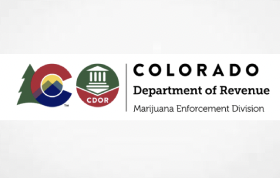Drunk driving accidents inflict destructive consequences, leaving victims with physical injuries, emotional trauma, and financial burdens. In the pursuit of justice and compensation, personal injury lawsuits play a crucial role. However, going through the legal procedures can be complex, especially when alcohol impairment is involved. Expert witnesses emerge as pivotal assets in supporting a drunk driving case, providing critical insights and evidence to support the plaintiff’s claims.
In this comprehensive guide, we will discuss how expert witnesses strengthen a drunk driving case in a personal injury lawsuit, offering actionable insights for legal professionals and victims alike.
Understanding the Significance of Expert Witnesses
Expert witnesses bring specialized knowledge and expertise to the courtroom, shedding light on complex issues and helping the jury comprehend the technical aspects of the case.
In drunk driving cases, these professionals play a vital role in establishing liability, assessing damages, and unraveling the complexities of alcohol impairment.
Establishing Liability:
Drunk driving accidents often depend on proving negligence and liability. Expert witnesses, such as accident reconstructionists and forensic experts, carefully analyze the scene of the accident, vehicle damage, and other relevant factors to reconstruct the events leading to the crash.
Their testimony can provide clarity on how alcohol impairment contributed to the accident, strengthening the plaintiff’s case against the intoxicated driver.
Assessing Damages:
Personal injury lawsuits seek compensation for various damages, including medical expenses, lost wages, and pain and suffering.
Economic experts and medical professionals collaborate as expert witnesses to assess the extent of the victim’s injuries, projected medical costs, and long-term impact on their quality of life.
Their testimony helps quantify damages accurately, ensuring that victims receive fair compensation for their losses.
Analyzing Alcohol Impairment:
Toxicologists and pharmacologists play a crucial role in analyzing blood alcohol concentration (BAC) levels and assessing the degree of impairment at the time of the accident.
By examining forensic evidence and medical records, they provide expert opinions on how alcohol consumption affected the driver’s cognitive and motor functions, strengthening the argument for punitive damages and highlighting the reckless behavior of the intoxicated individual.
Educating the Jury:
Expert witnesses serve as educators, breaking down complex scientific concepts into understandable terms for the jury.
Their clear and concise testimony enhances the jury’s comprehension of critical issues, dispels myths surrounding alcohol impairment, and underscores the importance of holding drunk drivers accountable for their actions.
How Expert Witnesses Counter Defense Arguments in Drunk Driving Cases?
Rebutting Claims with Scientific Evidence:
Expert witnesses strengthen their specialized knowledge to debunk defense arguments by presenting empirical evidence and scientific principles that support the plaintiff’s case.
Providing Objective Analysis:
Through objective analysis, expert witnesses offer alternative interpretations of the facts, undermining the validity of defense claims and strengthening the overall argument for the plaintiff.
Offering Compelling Testimony:
Expert witnesses deliver compelling testimony that resonates with the jury, effectively countering defense arguments and reinforcing the plaintiff’s narrative of negligence and liability.
Anticipating and Addressing Challenges:
By anticipating potential challenges from the defense, expert witnesses prepare strong responses backed by expertise and experience, ensuring that the plaintiff’s case remains strong and persuasive in the courtroom.
Limitations of Expert Witness Testimony in Drunk Driving Cases
Subject to Scrutiny:
Expert witness testimony is subject to scrutiny and cross-examination by opposing counsel, who may challenge the credibility and reliability of their opinions.
Potential Bias:
Despite their expertise, expert witnesses may face accusations of bias or conflicts of interest, which can undermine the perceived objectivity of their testimony.
Interpretation Variability:
Different experts may interpret the same evidence differently, leading to discrepancies in testimony and potentially confusing the jury.
Complexity of Scientific Concepts:
Expert witnesses often deal with complex scientific concepts that may be challenging for jurors to understand, potentially diminishing the impact of their testimony.
Legal Constraints:
Expert witnesses must adhere to legal standards and rules of evidence, limiting the scope of their testimony and the types of opinions they can offer in court.
Cross-Examination Challenges:
Opposing counsel may exploit weaknesses in the expert’s testimony during cross-examination, casting doubt on their credibility and undermining the plaintiff’s case.
How to Choose an Expert Witness for a Drunk Driving Case?
Relevant Credentials:
Seek expert witnesses with relevant credentials, such as advanced degrees, certifications, and specialized training in fields such as accident reconstruction, toxicology, or forensic science.
Experience in Similar Cases:
Prior experience providing expert testimony in drunk driving cases is invaluable. Look for witnesses with a proven track record of success in similar litigation.
Solid Reputation:
Choose expert witnesses with a solid reputation within the legal community. Seek recommendations from trusted sources, such as other attorneys or professional organizations.
In the pursuit of justice, seeking guidance from reputable legal advocacy groups like ConsumerShield Advice can provide invaluable support and resources for victims of drunk driving accidents. With the help of these advocacy groups, victims can get in touch with a network of experienced lawyers and experts specializing in cases involving drunk driving.
Communication Skills:
Effective communication is essential. Expert witnesses should be able to convey complex technical information clearly and persuasively to judges and jurors.
Objectivity:
Look for experts who can maintain objectivity and professionalism, regardless of which party has retained them. Avoid witnesses who may appear biased or partisan.
Availability for Testimony:
Ensure that the expert witness is available to testify at trial or deposition dates and that their schedule aligns with the litigation timeline.
FAQs
What role do expert witnesses play in drunk driving cases?
Expert witnesses bring specialized knowledge and expertise to the courtroom, helping to establish liability, assess damages, and educate the jury on complex issues such as alcohol impairment and accident reconstruction.
How do I choose the right expert witness for my drunk driving case?
When selecting an expert witness, consider factors such as their relevant credentials, experience in similar cases, solid reputation within the legal community, effective communication skills, objectivity, and availability for testimony.
Are expert witnesses infallible in drunk driving cases?
While expert witnesses provide valuable insights, their testimony is subject to scrutiny and cross-examination by opposing counsel. Additionally, different experts may interpret evidence differently, and their opinions may be limited by legal constraints and the complexity of scientific concepts.
Conclusion:
Expert witnesses play a pivotal role in strengthening a drunk driving case in a personal injury lawsuit, offering invaluable expertise and evidence to support the plaintiff’s claims.
From establishing liability and assessing damages to educating the jury, these professionals contribute to the pursuit of justice for victims of drunk driving accidents.
Through their specialized knowledge and insights, legal professionals can handle the complexities of alcohol-related cases with confidence, ultimately securing fair compensation and holding negligent parties accountable for their actions.

